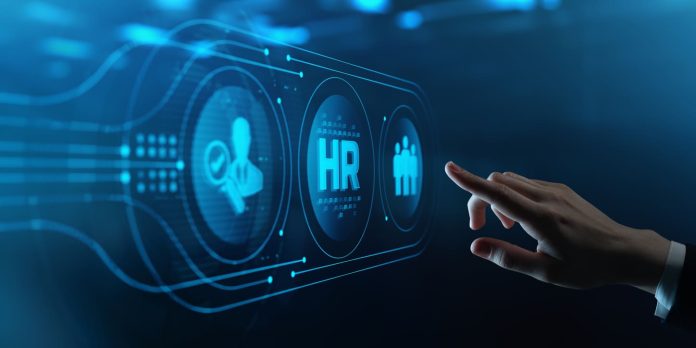In today’s fast-paced business world, organizations are increasingly turning to technology to streamline operations, improve efficiency, and foster a positive workplace culture. Human Resources (HR) technology, in particular, has evolved from being a mere administrative tool to a strategic asset that plays a crucial role in shaping employee experiences and driving business growth. By integrating sophisticated HR software into their operations, businesses can not only simplify their HR processes but also create a more engaged, productive workforce that is aligned with organizational goals.
The Rise of HR Tech: A Game Changer for Businesses
Human Resources has always been a core function within any organization, responsible for everything from payroll and compliance to employee development and retention. However, with the rise of digital transformation, HR has seen a dramatic shift in the way it operates. Modern HR software systems provide businesses with the tools they need to handle everything from hiring and onboarding to performance management and benefits administration—all in one centralized platform.
At the heart of this change is the move from manual, paper-based systems to digital solutions that are not only faster but also smarter. Automation, data analytics, and cloud-based solutions have made it possible for HR departments to manage tasks with greater ease, speed, and accuracy. This shift has paved the way for businesses to focus more on the strategic side of HR, such as employee engagement and development, while leaving the routine administrative tasks to the technology.
Improving Employee Experience Through Technology
One of the most significant ways HR tech is benefiting businesses is through its positive impact on employee experience. A seamless, intuitive HR platform can help employees feel valued, supported, and engaged, which in turn can lead to higher job satisfaction and productivity.
For example, HR software often includes self-service portals that allow employees to access their personal information, request time off, update benefits, and track their performance—all from the convenience of a mobile device or computer. This empowerment reduces the dependency on HR staff for routine tasks, giving employees greater control over their experience and creating a more positive work environment.
Additionally, many modern HR systems come with built-in communication tools that promote transparency and open lines of communication between management and employees. Features like real-time feedback, performance reviews, and instant messaging ensure that employees feel heard and appreciated, which fosters a culture of trust and collaboration. When employees feel like their voices are valued, they are more likely to be engaged and committed to their work.
Boosting Productivity with Streamlined Processes
HR software also plays a pivotal role in increasing organizational efficiency by automating time-consuming tasks. Manual processes such as payroll calculations, benefits administration, and compliance tracking are prone to human error and can take up a significant amount of time for HR personnel. By automating these functions, HR tech reduces the risk of mistakes and frees up time for HR teams to focus on more strategic initiatives.
For example, payroll automation ensures that employees are paid accurately and on time while reducing the administrative burden on HR staff. Benefits enrollment and administration can also be streamlined, providing employees with easy-to-understand options and reducing the likelihood of errors in plan selection. Compliance features within HR software help businesses stay up-to-date with the latest regulations and ensure that all necessary paperwork is completed correctly, thus avoiding costly penalties.
By reducing the time spent on manual processes, HR software allows HR teams to focus on high-impact activities such as talent management, employee development, and performance optimization. This shift in focus leads to a more engaged and skilled workforce, which ultimately drives business growth.
Leveraging Data to Drive Business Decisions
Another key benefit of HR software is its ability to collect and analyze data that can inform business decisions. With advanced reporting and analytics tools, HR systems can generate insights on employee performance, turnover rates, and engagement levels. This data can be invaluable for leadership teams when making decisions about talent acquisition, retention strategies, and workforce development.
For example, analytics can help identify trends in employee performance, such as which teams are consistently excelling, and which may need additional support or training. This data-driven approach enables businesses to address potential issues before they become major problems, ensuring that employees are supported and equipped to succeed. Additionally, HR data can provide insights into the effectiveness of current policies and programs, allowing organizations to make informed adjustments that improve overall employee satisfaction and retention.
Scalability and Flexibility for Growing Businesses
As organizations grow, their HR needs become more complex. HR software offers the scalability and flexibility necessary to accommodate a growing workforce. Whether a business is expanding its team, launching new offices, or adding new benefits packages, HR software can scale with the organization’s needs. This adaptability ensures that businesses are able to continue offering a seamless HR experience even as the number of employees increases.
Furthermore, many HR platforms integrate with other business tools, such as project management software, accounting systems, and CRM platforms, creating a unified ecosystem that supports seamless workflows across the entire organization. This level of integration not only increases operational efficiency but also enhances collaboration between departments, ultimately contributing to the overall success of the business.
HR Tech as a Strategic Business Asset
In today’s competitive landscape, businesses cannot afford to overlook the strategic advantages of HR technology. By implementing an effective HR software solution, organizations can improve employee experience, streamline processes, and leverage data to make informed decisions that drive business growth. Whether it’s through automating routine tasks, fostering better communication, or enabling data-driven strategies, HR tech plays a crucial role in helping businesses achieve their goals while creating a more engaged and productive workforce.
Ultimately, HR software isn’t just about managing people—it’s about enabling organizations to unlock their full potential and foster a workplace culture that attracts top talent, boosts employee morale, and drives long-term success.





































